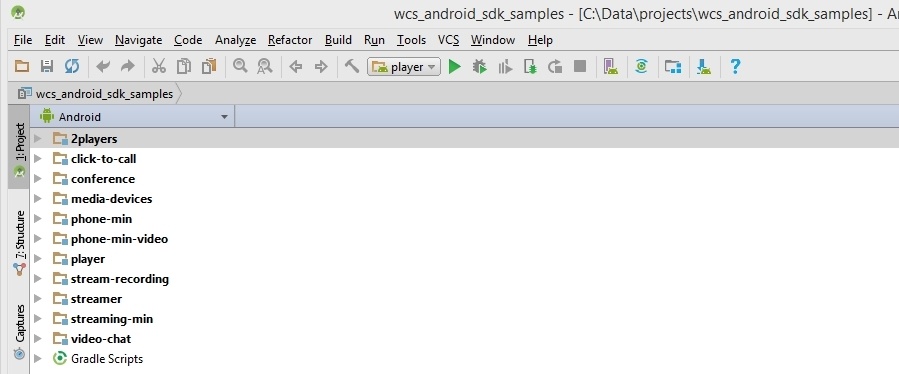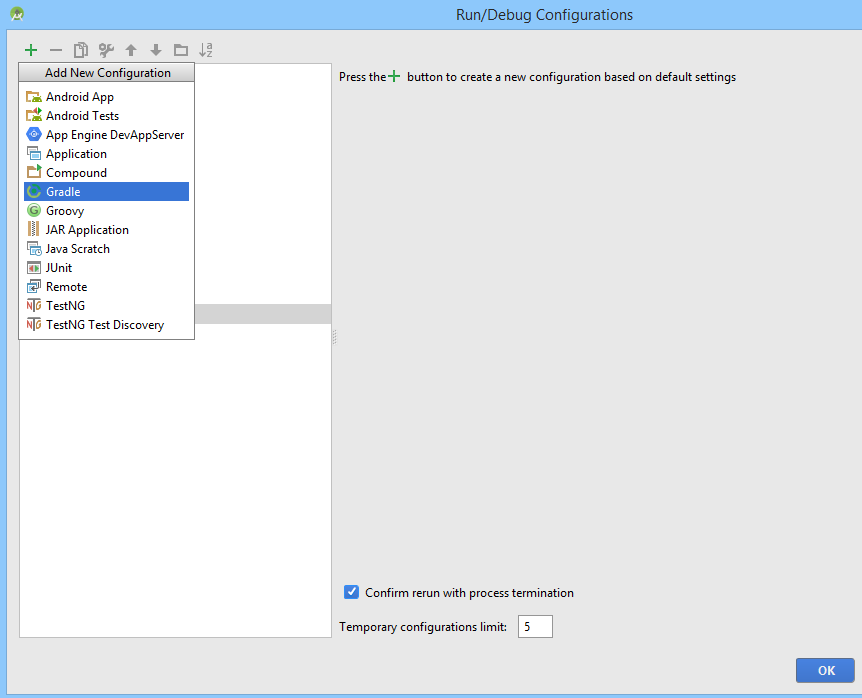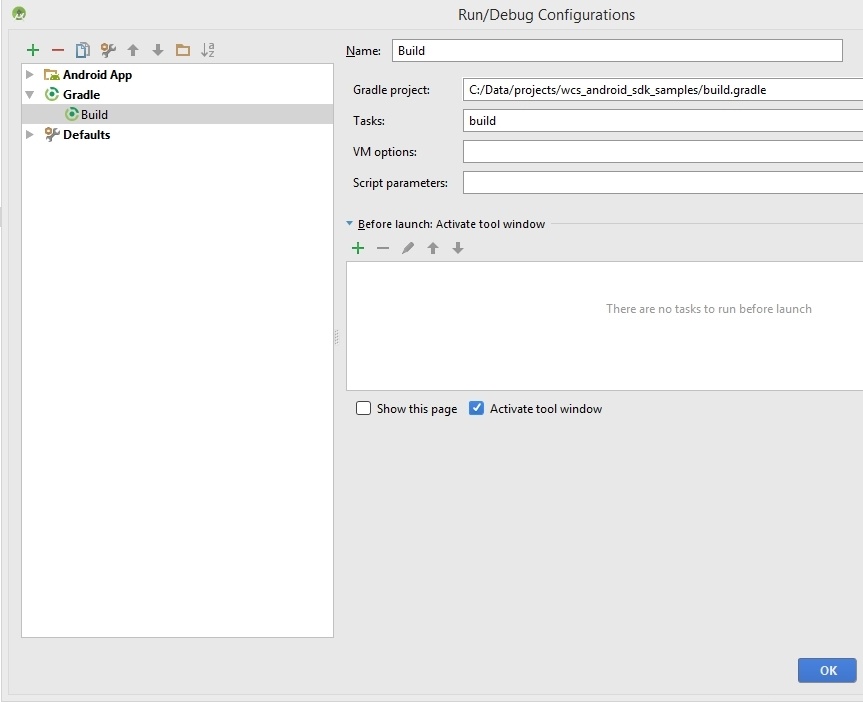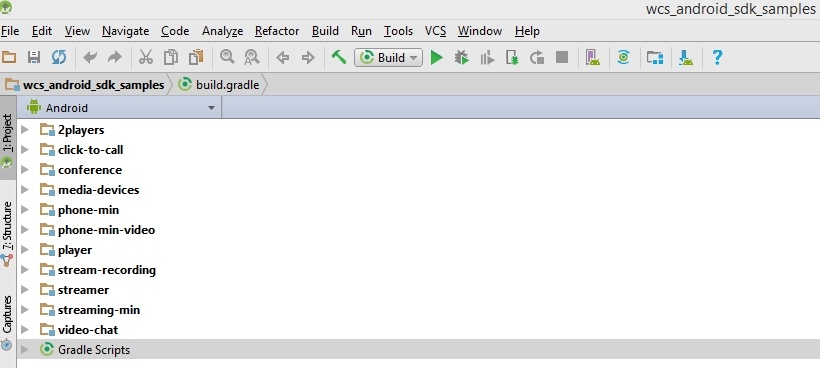Resources
Use Android SDK to develop mobile applications for streaming video and calls.
Download WCS Android SDK as .aar file
http://flashphoner.com/downloads/builds/flashphoner_client/wcs-android-sdk/aar
Download full WCS Android SDK build including examples and API documentation
http://flashphoner.com/downloads/builds/flashphoner_client/wcs-android-sdk
Read API documentation online
http://flashphoner.com/docs/api/WCS5/client/android-sdk/latest
Download the source code of the examples
https://github.com/flashphoner/wcs-android-sdk-samples
The source code of the examples is located at Github and is used to comment the examples in the present documentation.
For instance, this link line 34 refers to the thirty fourth line in the TwoPlayersActivity.java class of the 2players example, the revision with the hash of 4ed4c6d77.
To test compiled applications, download The full build with the examples And install the .apk file to your Android device.
Differences between Android SDK versions
In Android SDK 1.1 WebRTC library libjingle_peerconnection.jar is updated to actual version. So Android SDK 1.1 requires Android API 28, i.e. application build with Android SDK 1.1 will run on Android 8 and higher. Use Android SDK 1.0 to support previous Android versions.
Preparing examples for building
If you have some experience in developing Android apps, you can simply download the aar-library and link it to the project manually, then configure building.
Below is how to do this automatically using the export.sh script:
1. Download the examples
git clone -b 1.0 git@github.com:flashphoner/wcs-android-sdk-samples.git
2. Download the aar library and put it to the 'export' folder
Example:
wget http://flashphoner.com/downloads/builds/flashphoner_client/wcs-android-sdk/aar/wcs-android-sdk-1.0.1.2.aar cp wcs-android-sdk-1.0.1.2.aar export
3. Open the 'export' folder and execute the export.sh script that will prepare configs for further building. The result is placed into the 'output' folder.
cd export ./export.sh wcs-android-sdk-1.0.1.2.aar
4. Edit the local.properties file and specify paths to Android SDK and NDK
Example:
ndk.dir=/opt/android-ndk-r12b sdk.dir=/opt/android-sdk-linux
Building examples with Gradle
Prepare examples for building, then go to the 'output' folder and start building:
cd output gradle build
Building examples in Android Studio
Prepare examples for building and put them to the 'output' folder, then rename it to 'wcs_android_sdk_samples', for instance.
1. Install the following programs:
2. Open the project from the 'output' folder in Android Studio
4. Add Gradle run configuration to the Run / Debug Configurations menu
5. To configure the run, specify the build.gradle file, the name of the build and set the purpose to: build
6. Run building of examples.
The building result is .apk files located in the corresponding folders: 2players/build, click-to-call/build, and so on.
The Android SDK file is located in the following path in the project: libs/wcs-android-sdk-1.0.1.2.aar
Known issues
1. It is impossible now to set microphone gain in Android SDK while publishing stream.



